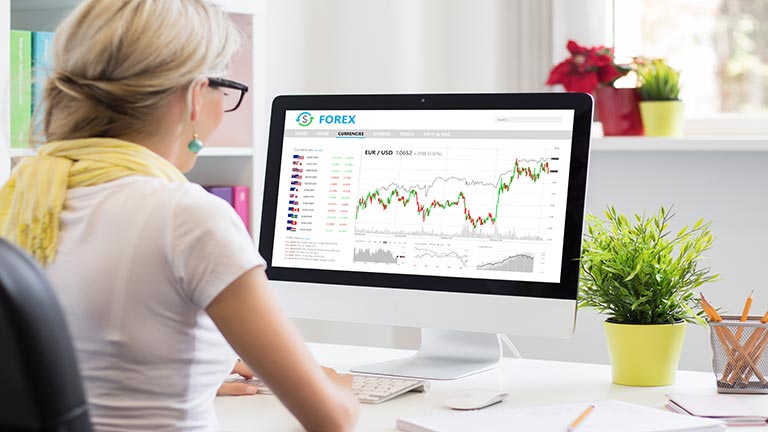How Currency Prices Affect the Share Market

By Dale Gillham
Last week I discussed the factors that affect currency prices, so if you haven't watched the video I recommend you watch it first and then come back to this one. Now that you understand what causes currencies to rise and fall, I am going to share with you how currency prices affect the share market.
The relationship between currency prices and the share market
To appreciate the relationship between currencies and the share market, you need to understand currency pairs, which is essentially the exchange rate between the two currencies.
For example, if I want to exchange one Australian dollar for one US dollar and the exchange rate is $0.70, I would receive 70 cents US for my Australian dollar. If, on the other hand, I have one US dollar and decide to exchange this for one Australian dollar, I would receive $1.42 Australian. So the currency pair in this case is AUD and USD.
As I discussed in my previous recording, exchange rates will be heavily affected by the supply and demand for that given currency.
Keep in mind that while you might be investing in only one country, that country will always be exposed to international markets. Today more than ever, we live in a global world and this has made it easier for companies to operate all around the globe.
Companies that export goods overseas benefit from weaker currencies, as they will receive more money for their goods. Let me explain.
Around the world most exports are transacted in US dollars, which include commodities and other resources. Iron Ore, for example, is always written in US dollars regardless of where it is being exported from. If an Australian resources company wanted to sell iron ore to the US and the Australian dollar was weaker against the US dollar, then when the company exchanges the price of the goods back to Australian dollars, they would receive more money given the US dollar would buy more Australian dollars.
The opposite is true if the Australian dollar is strong and the US dollar is weaker, companies will receive less Australian dollars.
Companies that import goods benefit from a stronger dollar, as they can buy more goods for a lower cost. For example, manufacturing companies can buy more components for less cash, therefore, a higher exchange rate means more buying power. On the flip side, a lower exchange rate means you can buy less.
You could also look at international tourism, as a country with a low exchange rate is more attractive to tourists as they will get more bang for their buck. So international travel companies will benefit from an increase in business. That said, if exchanges rates are high, this discourages international travel and so more people will travel domestically, and so companies involved in domestic travel benefit.
Whilst my explanation is at a relatively high level, this is how currencies affect the share market. So how can we use this information?
Benefiting from currency prices in the share market
As a starting point, I recommend you look at the top 100 stocks on the market to scan for companies that are heavy exporters and/or importers, and make two separate lists. Then look at the exchange rate to determine if it is rising or falling to identify stock prices that are likely to rise and those that likely to fall.
So there you have it. Now let’s get into this week’s stocks. Watch the video to find out.






